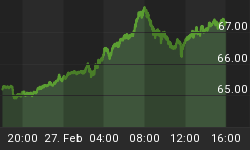It's understandable (sort of) that the Fed wants to raise short-term interest rates so it can cut them again in the next downturn. But what if the next downturn is already here? That's the signal being sent by the world's other central banks:
(New York Times) - Sweden's central bank says it will expand its bond purchase stimulus program by 65 billion kronor ($7.6 billion) to help the economy and nudge inflation toward the 2 percent target.
Sweden's Central Bank Expands Stimulus ProgramWednesday's announcement means the Riksbank's bond-buying will reach 200 billion kronor by the middle of next year, and comes as several central banks around the world consider more stimulus to fend off an economic slowdown.
Analysts said the move was in response to the potential of more stimulus from the European Central Bank in the eurozone, of which Sweden is not a member. Stimulus tends to weigh on a currency, and a rise in the Swedish krona against the euro would hurt exporters and weigh on inflation.
(Reuters) - With some rate-setters advocating immediate policy easing last week, European Central Bank President Mario Draghi struck a compromise to keep the doves on side and set up expectations for action in December, central banking sources said.
Draghi's compromise with doves heralds ECB policy easing in DecemberSeveral influential Governing Council members argued that the ECB's balance sheet was still relatively small, especially compared to the U.S. Federal Reserve while Denmark's deeply negative deposit rate illustrated that there was still room to reduce rates, one source with knowledge of the discussion said.
"It needs to be understood: there is consensus at the ECB Governing Council," a rate-setter, who asked not to be named, said. "A move in December is likely."
"Inflation is just not moving higher, there is a risk of falling into a Japanese-style liquidity trap," the Governing Council member said.
With inflation in negative territory, the ECB is far from its target of getting price growth to near 2 percent and its 60 billion euros (43 billion pounds) a month asset buys have proven insufficient as lower energy prices and slower growth in emerging economies have worked against it.
(Reuters) - Japan's retail sales unexpectedly fell on-year in September, official data showed on Wednesday, suggesting that consumer spending lacks the momentum to make up for weak exports and factory output.
Japan's retail sales fall piles pressure on BOJRetail sales fell 0.2 percent in September from a year earlier, compared with economists' median estimate for a 0.4 percent rise, the Ministry of Economy, Trade and Industry said on Wednesday.
The retail sales news could add to pressure on the Bank of Japan under to expand monetary stimulus, possibly as soon as its rate review meeting on Friday, when it is also expected to slash its rosy economic and price projections, analysts say.
(Bloomberg) - China stepped up monetary easing with its sixth interest-rate cut in a year to combat deflationary pressures and a slowing economy, moving ahead of anticipated fresh stimulus by central banks from Europe to Japan and possible tightening in the U.S.
China Cuts Interest Rates as Policy Divergence With US WidensThe one-year lending rate will be cut to 4.35 percent from 4.6 percent effective Saturday the People's Bank of China said on its website on Friday, while the one-year deposit rate will fall to 1.5 percent from 1.75 percent. Reserve requirements for all banks were lowered by 50 basis points, with an extra 50 basis point reduction for some institutions.
Authorities are seeking to cushion an economy forecast to grow at the slowest annual rate in a quarter century as old growth drivers such as manufacturing and construction falter and new drivers like consumption struggle to compensate. Meantime, consumer inflation at about half the government's target and a protracted slump in producer prices added room for additional easing.
"Clearly the People's Bank of China is on a mission to ease policy and has been for a year," said George Magnus, a senior independent economic adviser to UBS Group AG in London. "With the economy losing momentum, deflation embedded in the corporate sector and rebalancing making limited headway, the central bank is being directed to ease monetary policy further. And of course, this isn't the end of the road yet."
Does the rest of the world know something the US doesn't? Obviously yes, which is that the global economy is tipping back into recession in an environment of historically unprecedented financial fragility. Government, consumer and business debt has never been this high, the leveraged speculating community has never been this leveraged, and unemployment in a lot of places is already too high for political comfort. Toss a recession into this mix and the result will be a whole series of possible crises, each more apocalyptic than the last.
So the other central banks are reacting as fiat currency central banks always do, with easier money. The fact that money is already as easy as it's ever been won't stop it from getting even easier. As one of the above articles noted, "Denmark's deeply negative deposit rate illustrated that there was still room to reduce rates."















